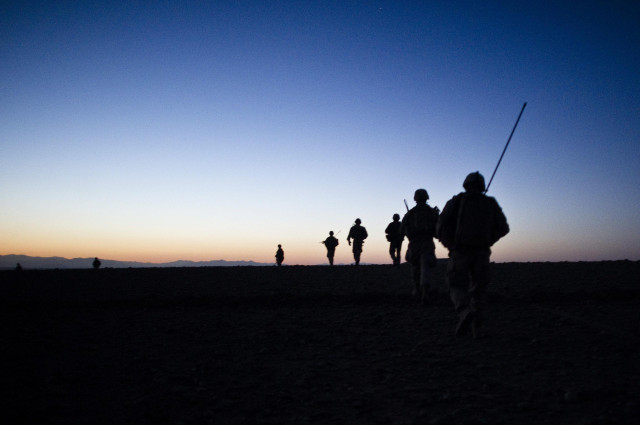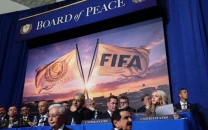UK parliamentary committee urges US-Taliban talks
Experts and officials say the process of political reconciliation is the best remaining hope of ending the Afghan war.

The Foreign Affairs Committee said the military campaign was not working and urged the British government to use its influence in Washington to convince it to engage fully in direct talks with Taliban leaders. "An Afghan-led, but US driven, process of political reconciliation is the best remaining hope that the UK and others have of achieving an honourable exit from Afghanistan," the report, based on interviews with experts and officials, said.
Britain and the United States have long stressed the need for a political settlement in Afghanistan. But officials have also said any talks must be Afghan-led, and insisted military pressure is helping bring insurgents to the negotiating table. The report, however, argued the Afghan government led by President Hamid Karzai did not have the clout to negotiate a settlement without the direct involvement of Washington.
"All of those from whom we took evidence were convinced that the US's direct endorsement of, and participation in, talks was essential if a peace settlement is to be brokered..."
It said that while the military campaign might be achieving tactical successes, the overall security situation remained precarious. Current tactics might even reduce chances of a settlement by raising mistrust and radicalising the insurgency.
"Given that the pre-requisites for a successful military campaign are currently lacking, we conclude that the US should not delay its significant involvement in talks with the Taliban leadership..." it said. The report - which echoed comments made by Pakistan and some regional analysts that the Taliban could be convinced to break with al Qaeda in a political settlement - was researched last year and may have been overtaken by events.
Karzai in London talks
US Secretary of State Hillary Clinton said in a speech last month that Washington was "launching a diplomatic surge to move this conflict toward a political outcome that shatters the alliance between the Taliban and al-Qaeda ..."
"Now, I know that reconciling with an adversary that can be as brutal as the Taliban sounds distasteful, even unimaginable. And diplomacy would be easy if we only had to talk to our friends. But that is not how one makes peace," she said.
British Foreign Secretary William Hague said on Wednesday the situation in Afghanistan had in some cases moved on from the evidence given to the parliamentary committee. "I fully support the committee's assessment that now is the right time to advance a political process in Afghanistan," he said in a statement.
Official sources from several countries say talks are already underway with the Taliban, although these have yet to find shape in any kind of formal peace process.
The Taliban says publicly it will not negotiate until foreign forces leave, although many Afghan experts - including those cited in the report - say the original leadership of the movement which ruled Afghanistan from 1996 to 2001 are privately pragmatic about the need for talks.
The release of the report coincided with a fresh flurry of diplomatic contacts over Afghanistan. Karzai met newly appointed US special envoy for Afghanistan and Pakistan Marc Grossman, officials said, during a visit to London on Tuesday in which he also held talks with British Prime Minister David Cameron.
Echoing comments made by Clinton, Cameron called for real progress this year on reconciliation with insurgents who were ready to abandon violence, cut ties to al Qaeda and accept the basic tenets of the Afghan constitution.
"It is time for the Taliban to start this journey and to make this year a decisive year for peace in Afghanistan," he told a news conference held jointly with Karzai.
The Organisation of the Islamic Conference (OIC) is hosting a meeting in Saudi Arabia this week on Afghanistan which is expected to bring together representatives of more than 40 countries along with leaders of an Afghan peace council. Clinton said it would review efforts toward reconciliation.



















COMMENTS
Comments are moderated and generally will be posted if they are on-topic and not abusive.
For more information, please see our Comments FAQ